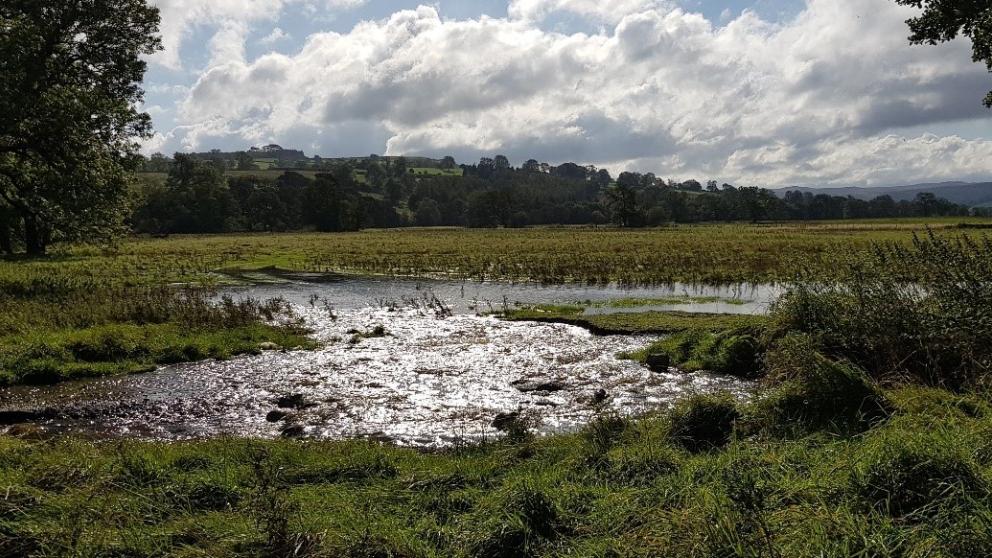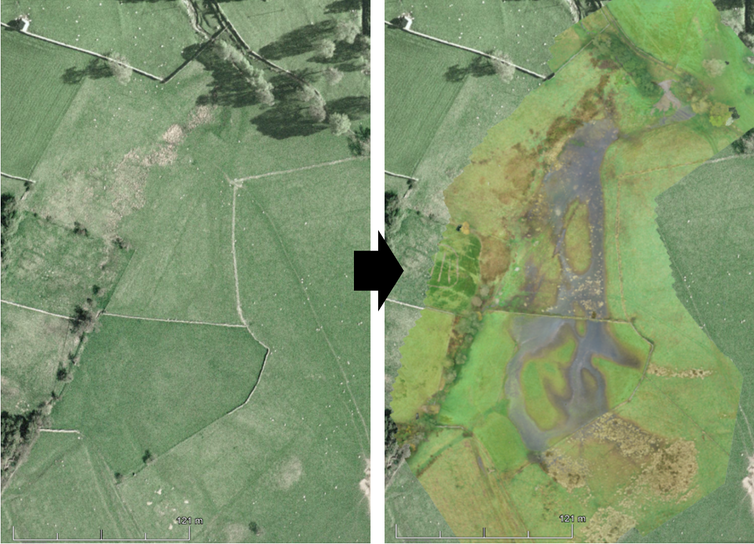AquaUoS research explores the use of flooding to slow climate change

Research undertaken by the University of Salford's AquaUoS team that demonstrates how sustainable flooding can help combat the issues of climate change has been published in The Conversation, a leading news website that covers articles written by academics on issues affecting the world.
AquaUoS is a commercial unit at the University who are specialists in sustainable river basin management, flood risk mitigation and river restoration. Their dedicated research and practical activities around floodplain wetlands is the subject of the article published in The Conversation highlighting how the management and restoration of these areas can lead to the enhancement of biodiversity, sequestering of CO₂, and moderation of downstream flooding.
Dr Neil Entwistle, Reader in River Science at Salford, said: “Our research has revealed the near complete destruction of fen, marsh and swamp habitats on floodplains across England. On the 555 floodplains we studied, 85% of rivers had no wetland associated with them at all.”
Practical river and floodplain restoration schemes designed by the team and delivered in partnership with the Environment Agency, Natural England and Rivers Trust across the UK has demonstrated how the simplest changes to drainage can have dramatic effects on the wetness of floodplains, and how well they store sediment and CO₂.
AquaUoS Director Dr George Heritage, said that “research evidence shows that every hectare of wetland restored captures 2.8 tonnes of Carbon every year, equivalent to nearly 7,500 miles of car travel.”

Changes to the way rivers and floodplains interact with flood water and sediment is also crucial to alleviating downstream flood risk and restoring the functioning of former floodplain wetlands.
Dr Heritage added: “These interventions are already bringing back wetlands across the floodplains of the Lake District in Cumbria. This work can complement the push to reforest and restore ecosystems to absorb CO₂ over time as well as delivering immediate flood risk benefits. Simple and cheap changes to drainage networks and tributary systems can rapidly restore floodplain functionality transforming low grade farmland into a diverse mosaic of wetland habitats”.
For all press office enquiries please email communications@salford.ac.uk.
Share:
